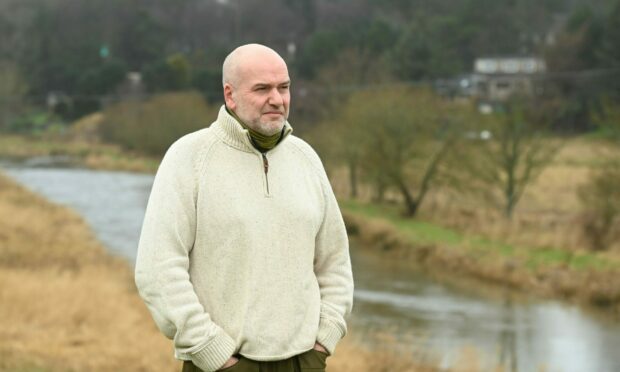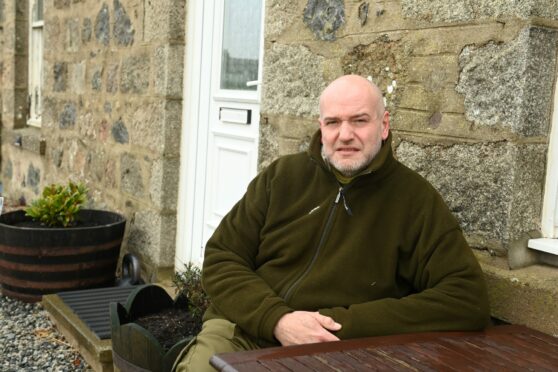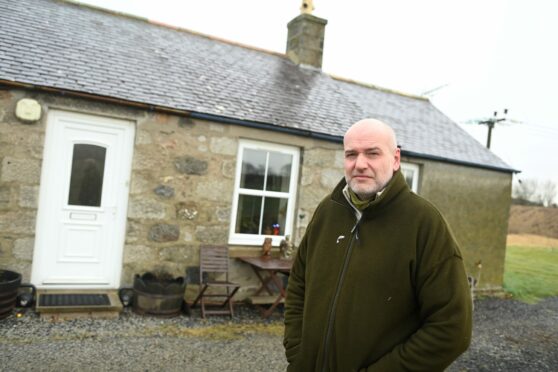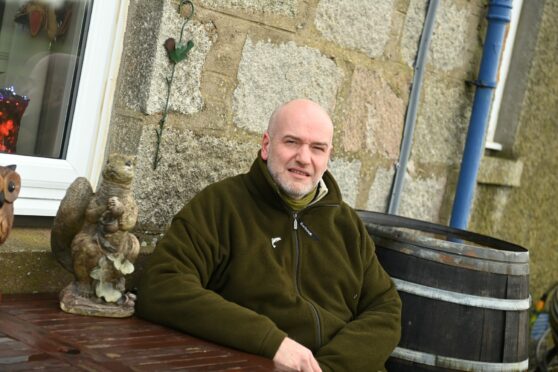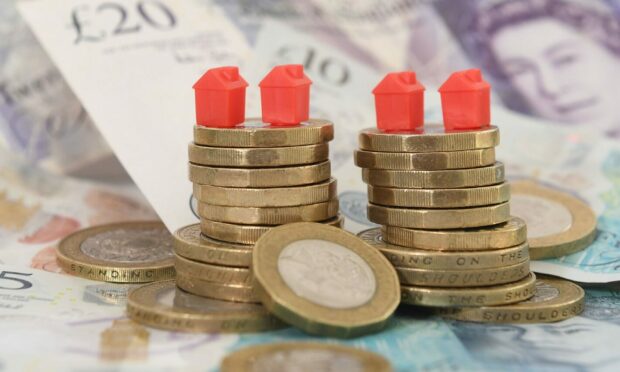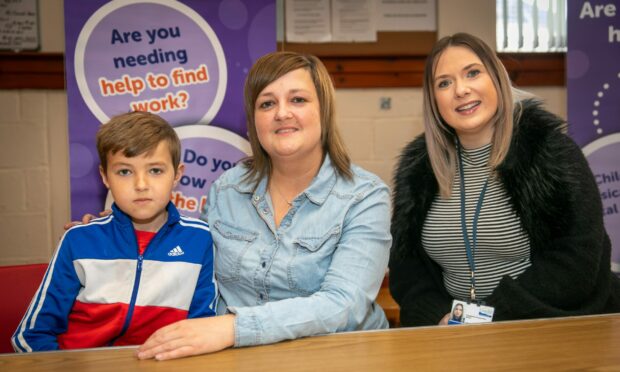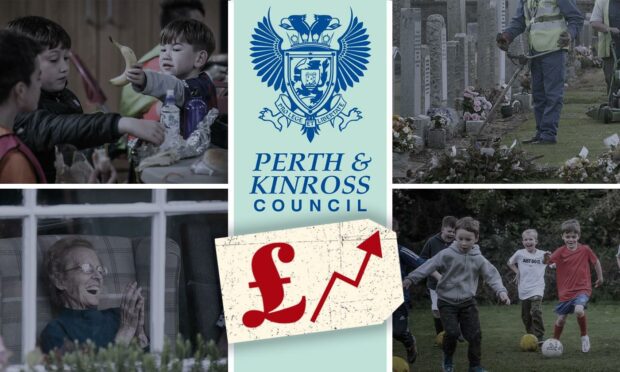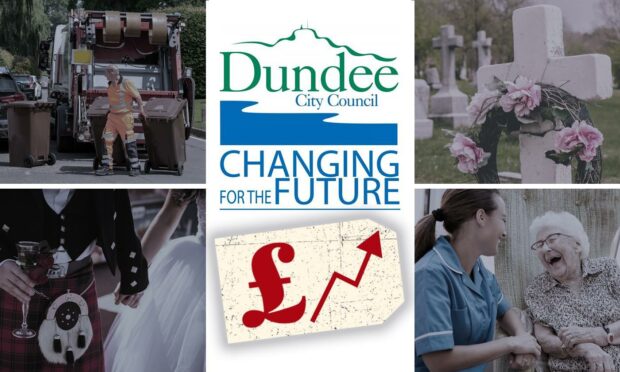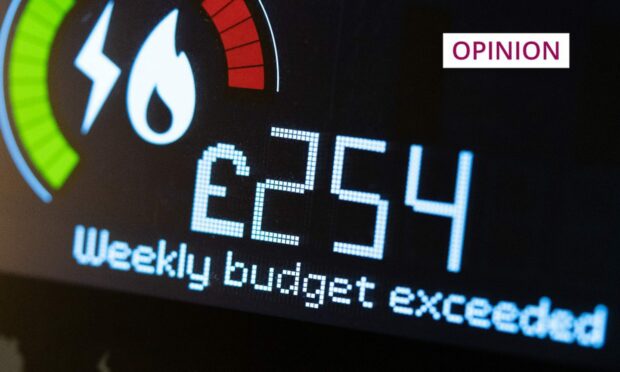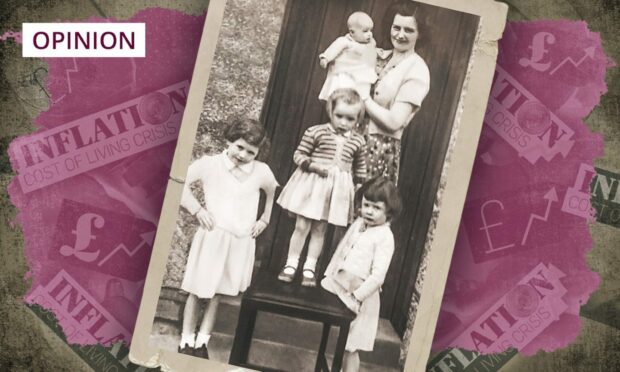A former oil and gas worker says soaring energy bills and the cost of living crisis means he has to go without food and showers just to get by.
Cameron Sutherland, 48, worked as a senior document controller in the industry for years but has been out of work and relying on benefits and food banks now for the past two years.
It comes after UK Chancellor Rishi Sunak announced the energy price cap will be increasing by 54%, meaning on average people will need to pay £693 a year more for their bills.
Interest rates are also rising by 0.5%, making mortgages and debt more expensive.
And National Insurance is increasing to help deal with a “colossal” NHS backlog caused by the coronavirus pandemic.
It has led to a cost of living crisis across Scotland, hitting people like Mr Sutherland hard.
‘I have tried my absolute best’
Mr Sutherland said: “I have been signed off work for a couple of years now and I have not been able to keep up with things.
“When I came out of the oil and gas industry I tried to apply for the Transition Scotland scheme which gives you £5,000 per person to help you get jobs like HGV driving.
“But then I got a job offer to do pharmaceutical document control in Holland – the money was nice and even though it was a hard job, I thought it would be good.
“But after a few months the main project there got cancelled and I was the first one to be let go.”
When he came back to Aberdeen he was unable to re-apply for funding from Transition Scotland and took up ad hoc work in Peterhead.
But for the past two years he has been unable to work due to poor mental health and only receives £317 a month in benefits.
Mr Sutherland said: “I can’t afford gas and electricity and I get damp patches on the walls.
“It has been a real struggle and I have tried my absolute best but I live in an old building which needs to be heated.
“I am only showering every other day and I do laundry at my mum’s place because it is too expensive.
“The cooker is electric and I try not to use my microwave so I don’t have hot meals.
“I only eat when I am really, really hungry.”
The cooker is electric and I try not to use my microwave so I don’t have hot meals. I only eat when I am really, really hungry.
– Cameron Sutherland
Recently Mr Sutherland’s energy bills have jumped from £75 a month to £140 – after paying child maintenance and his TV licence fee, all the rest of his money goes on trying to keep warm.
He added: “It shouldn’t cost that much money when it is just me.
“I didn’t realise how much I was struggling to pay my gas and electricity and just how much help I needed, but I am really starting to feel it now.”
Heating instead of eating
As well as finding it difficult to pay his energy bills, Mr Sutherland also has a tough time finding enough money to buy food each month.
Often he goes without food during the cold winter months so he can put his heating on instead.
He said: “I am grateful I live in a country with food banks.
“I use them about once a fortnight but there is the fuel cost of actually getting there and there is the stigma, which is unpleasant.
“My mum drops off food at the door for me and sometimes the neighbour drops off some soup.
“I don’t have hot meals and I only eat when I am really, really hungry.
“The quickest and fastest way to heat up is getting a tin of soup, but then you end up living on tinned food and that can take years off of you.
“I have mixed feelings because I am so appreciative there are services out there to help someone who is having a tough time.”
Calls for windfall tax to help those in need
BP posted profit margins of £9.5 billion and Shell reported £14.3bn for 2021.
Many politicians and campaigners have called for a windfall tax on big energy companies to help deal with the cost of living crisis.
A windfall tax is a one-off tax levied by governments against certain industries when economic conditions allow those industries to experience above-average profits.
This targets firms that have benefited from something they were not responsible for – a windfall.
First Minister Nicola Sturgeon said she is not “ideologically opposed” to a windfall tax, adding: “There’s no doubt that companies making massive profits and with the broadest shoulders here should be playing a part in contributing to helping families the length and breadth of the UK.”
Mr Sutherland says it is “baffling” to see oil and gas companies making such “ginormous” profits when people like him are struggling to heat their own homes.
He said: “It is a bugbear to see these ginormous profits.
“In the grand scale of things it is a baffling, astronomical amount of money and it is always the consumer that has to pay in the end.
“I was in the oil and gas industry for a very long time so I know it is expensive to get energy out of the ground, but it is frustrating.
“With all these vast profits, it depends on what they invest it in.
“If this is all just to line their own pockets, then no.
“But if they are going to reinvest that back into the grid, in the long-term that will benefit our children and our grandchildren’s future and help us to combat climate change.”
Where can you get advice?
Mr Sutherland approached Advice Direct Scotland for help.
The group recently published a survey showing 70% of Scots are worried about paying their bills.
The service runs a national help line, available online and by phone at 0808 196 8660.
The group also runs the energyadvice.scot service on billing, grants and assistance.
It has received more than four times the anticipated level of enquiries since it opened in April last year.
Andrew Bartlett, chief executive of Advice Direct Scotland, said: “Thousands of households are already rationing their energy use so that they can afford necessities such as food. And, as a result, many are cold in their own homes.”
